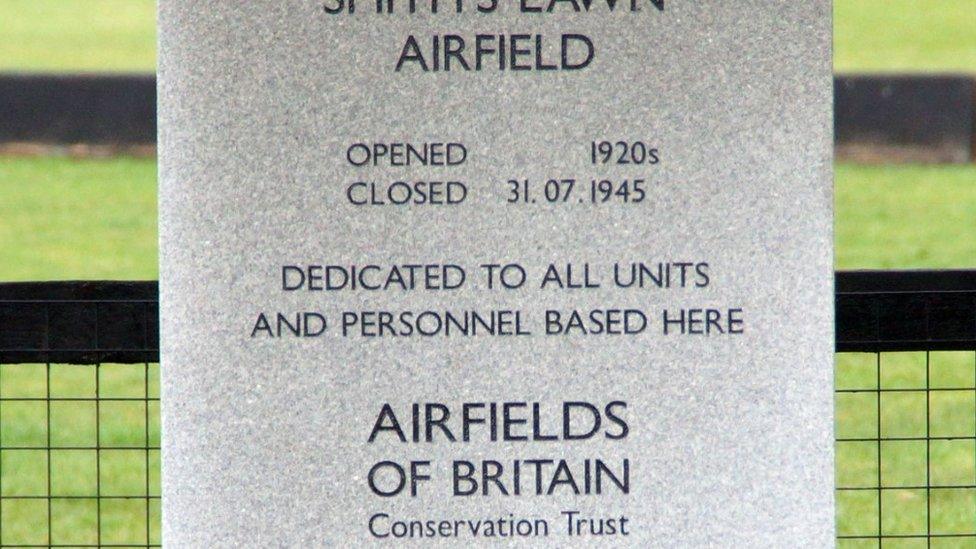Why I've spent decades commemorating Britain's airfields
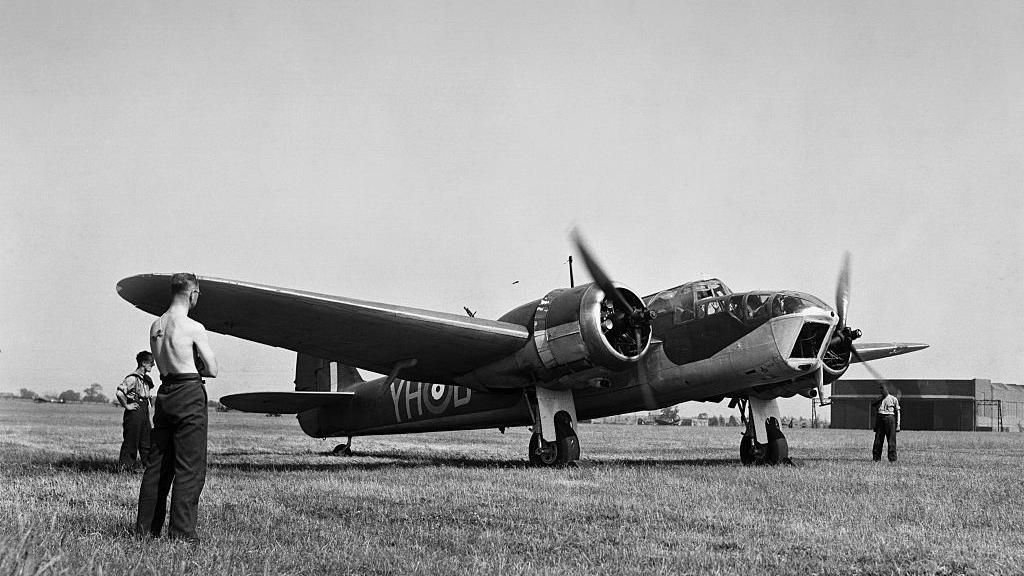
A Bristol Blemheim light bomber warming up its engines before taking off from RAF Watton in Norfolk during World War Two
- Published
Nowadays, most nine-year-old boys grow up wanting to be footballers or professional gamers. How did a family holiday to Norfolk lead Kenneth Bannerman to spend decades networking with veterans, politicians and royalty to celebrate forgotten airfields across the UK?
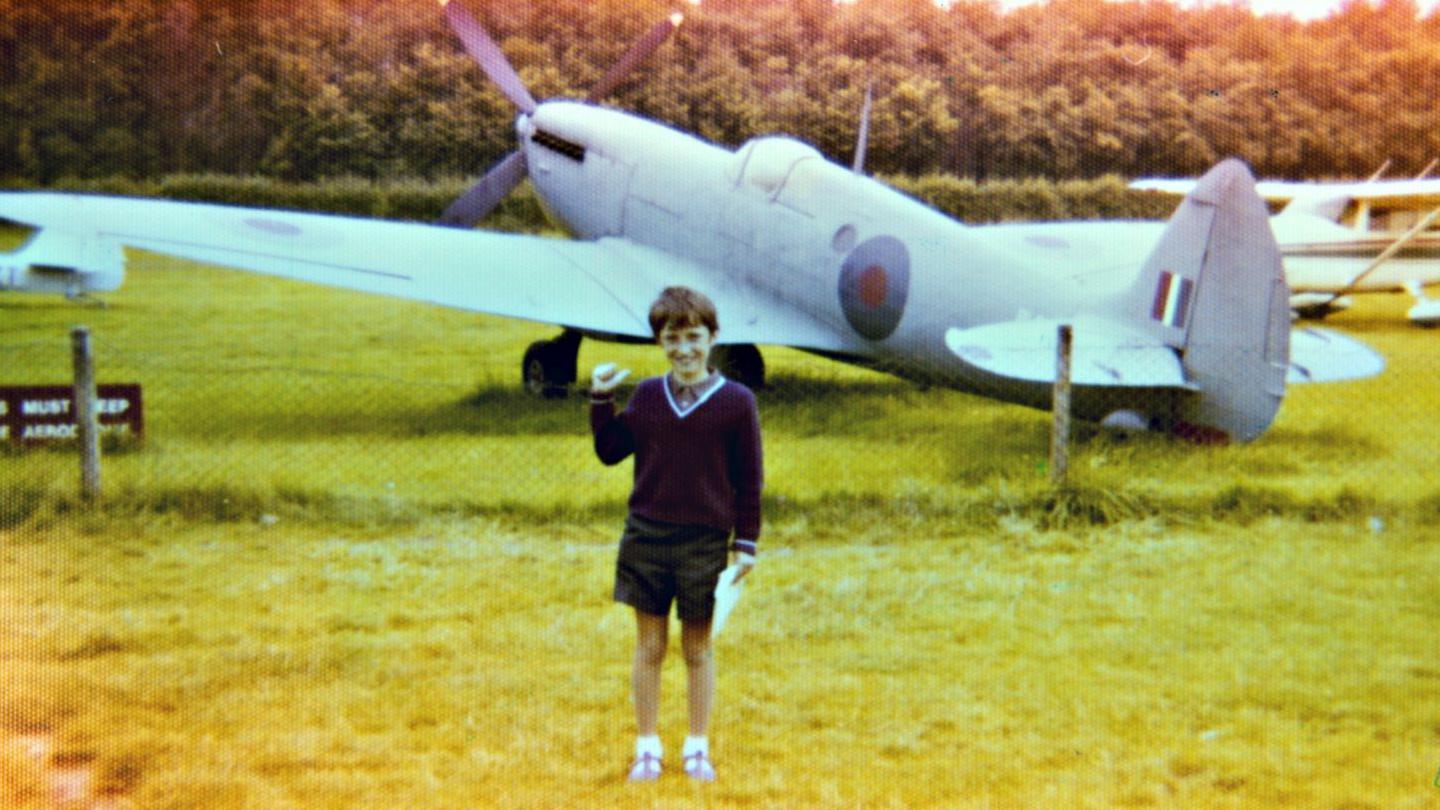
Kenneth Bannerman said he was "transfixed" after visiting Langham airfield in Norfolk
Mr Bannerman says his encounter with Langham airfield, near Blakeney Point, happened by chance in 1973.
His father had been stationed there in the 1950s and it was a last-minute decision for a trip down memory lane before the family went out for dinner that meant the younger Bannerman visited his first airfield.
About 20 different squadrons were stationed there over the course of World War Two, but three decades later the Bannermans found it being used for poultry farming with little in place to identify it as an old base.
"I more or less instinctively realised how incredibly important our airfields are but also how terribly badly they, and the personnel associated with them, were being treated," said Kenneth.
He said he had probably visited about 2,000 airfields or former airfields since then and during one trip he saw a veteran in tears at the state a former base had been left in.
It made him even more determined to "right the wrongs" and have airfields recognised.
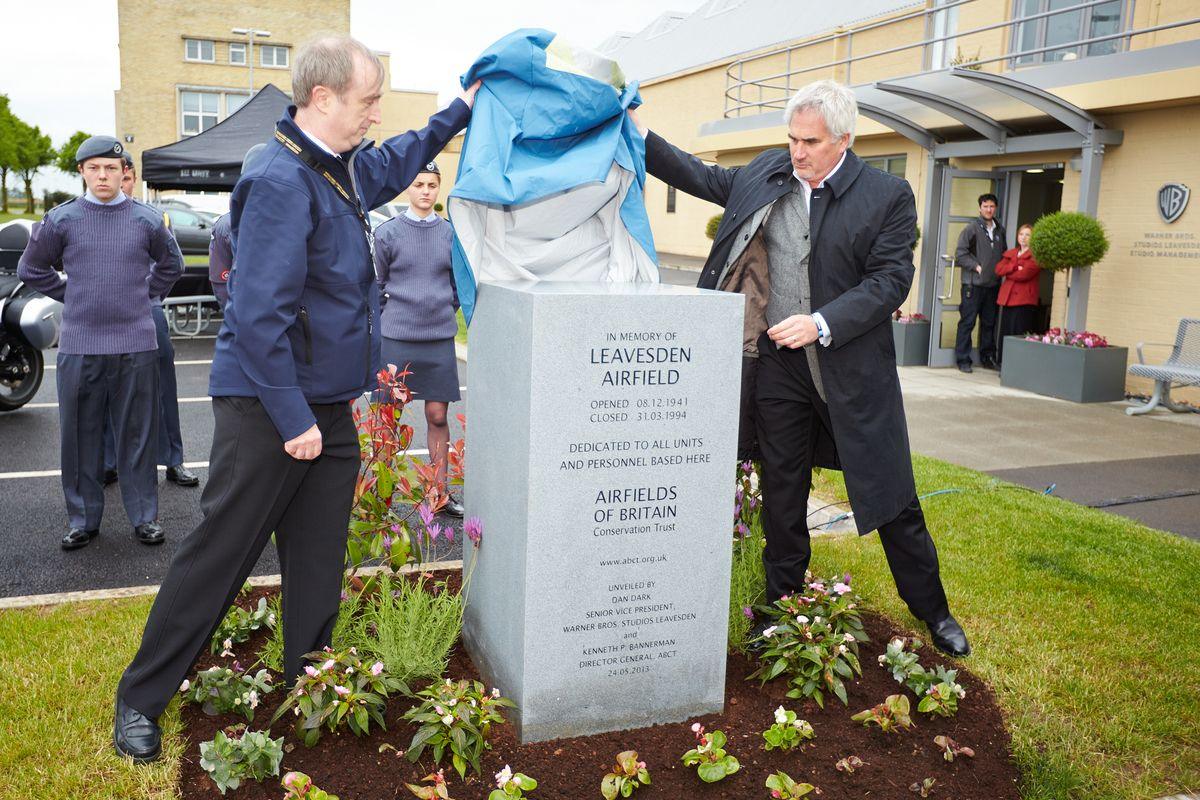
Kenneth Bannerman (left) unveiled the memorial to Leavesden airfield in Hertfordshire, where the Warner Bros Harry Potter Studio Tour now stands
However, it was not until 2006 that he founded the Airfields Of Britain Conservation Trust (ABCT).
Since then he and his small team have placed 235 memorials at sites around the UK.
The first marker was erected at Fambridge in Essex in 2009 - thought to be Britain's earliest airfield.
In 2016, the late Duke of Edinburgh helped unveil a memorial at a disused airfield in Berkshire, partly because he was the last person to officially fly from it.
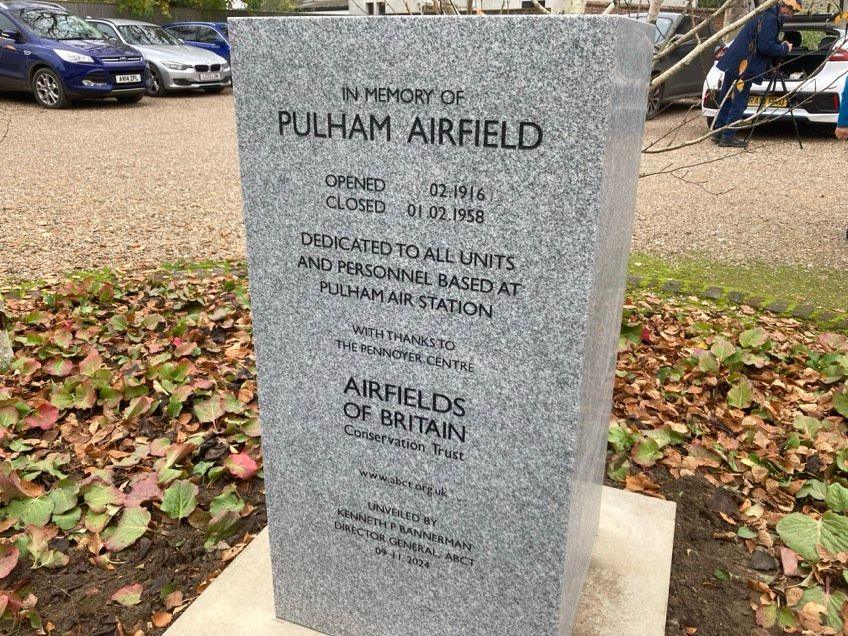
The Pulham Airfield marker was unveiled on Saturday to a small group
Mr Bannerman said: "These places have won wars, saved lives, helped people and revolutionised every day society in an incredible variety of ways."
This week, markers are being placed on the former sites of Fersfield and Pulham airfields in Norfolk.
Fersfield became best known for Operation Aphrodite where Boeing B-17s were filled with high explosives and converted into radio-controlled flying bombs.
Joseph Kennedy, the brother of future US President John F Kennedy, died during this mission.
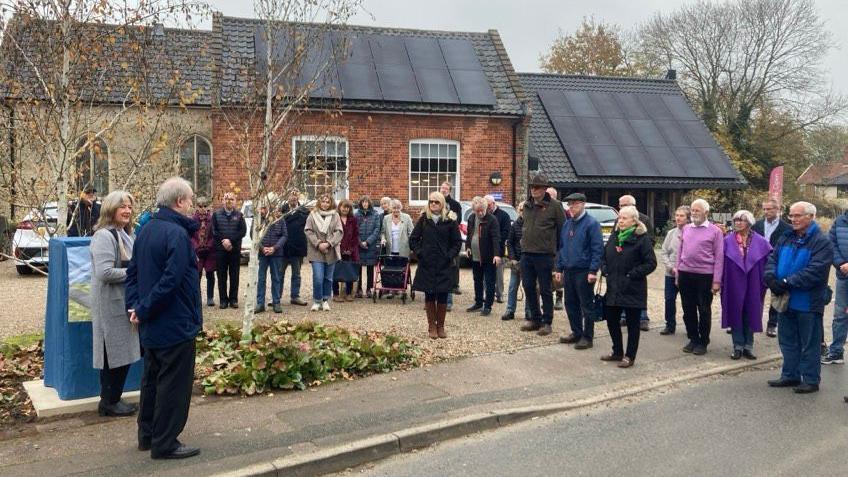
A small group gathered to witness the unveiled of the Pulham Airfield marker on Saturday
Meanwhile RNAS Pulham was known for its airships which patrolled the North Sea, protecting shipping from German U-boats.
The trust aimed to mark every airfield in Britain and although many are still used by the Royal Air Force, plenty are owned by organisations or private companies.
Identifying the locations of all airfields is also tricky because many of them were kept secret to try to gave the Allies a tactical advantage.
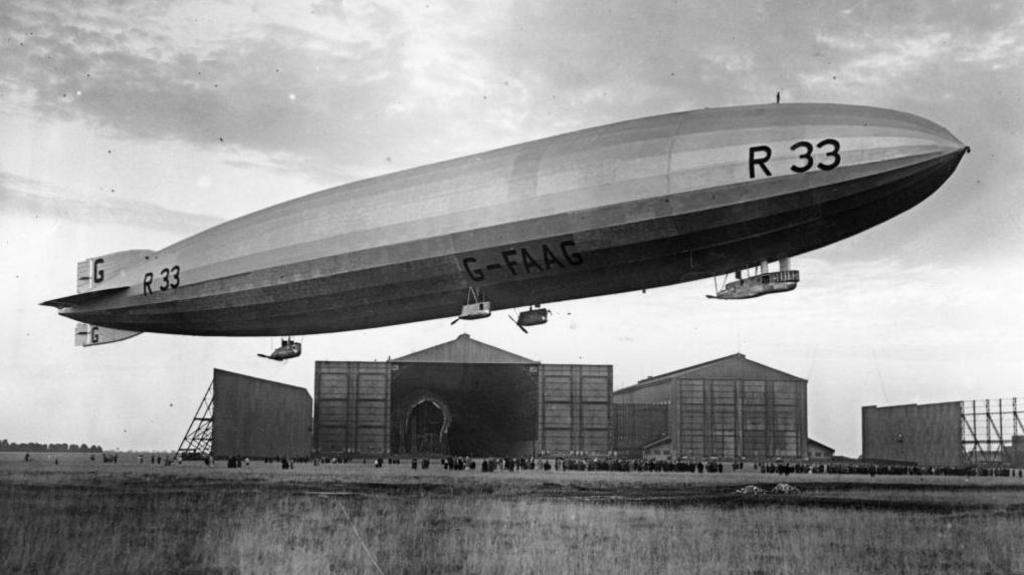
Legend says the airships were nicknamed "Pulham pigs" because a local man thought they looked like big pigs flying over the Norfolk base
Decoy airfields, which were set up with dummy aircraft and mock fuel stores to trick the Luftwaffe into bombing them instead of actual operational airfields, are also being recognised.
So far in 2024, some 14 markers have been unveiled with Mr Bannerman describing demand for memorials as "incredible".
"It is just really interesting to meet the people who normally turn up to the memorial unveilings," he said.
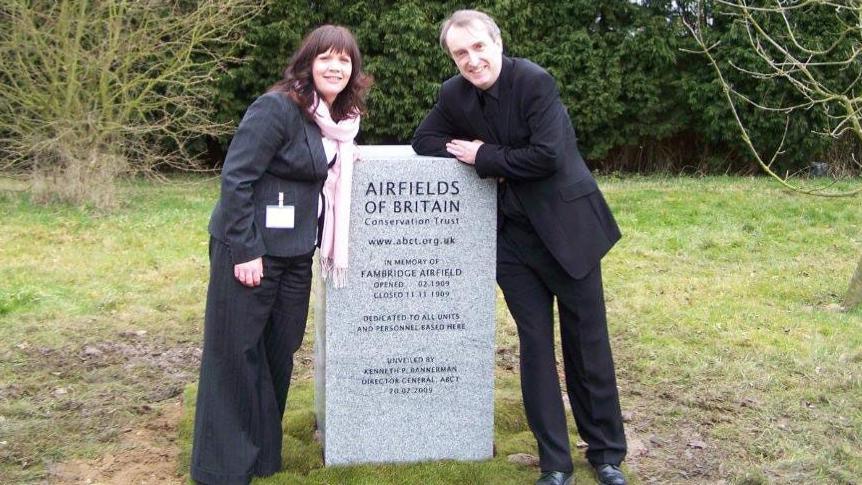
The first memorial was for Fambridge Airfield in Essex
The ABCT also works to help save airfields from being closed or damaged.
Last year, it helped stop plans to relocate the grave of the black labarador that was the Dambusters' mascot.
Mr Bannerman said airfields had been hugely significant for employment, boosting their local economies and shaping local communities.
"Contrary to what some people might think, [airfields] are more popular than you think," he said.
"In our every day lives, we just simply cannot afford to lose these places."
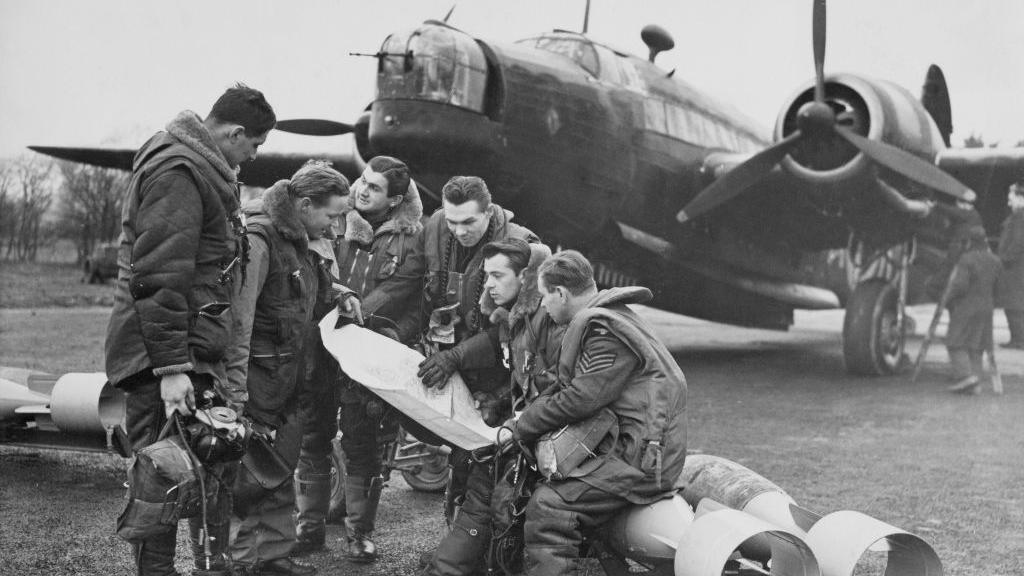
Photographing airfields, such as RAF East Wretham in Norfolk, during WW2 was banned in most places though we do have some photos from the time
Get in touch
Do you have a story suggestion for the East of England?
Follow East of England news on X, external, Instagram, external and Facebook: BBC Beds, Herts & Bucks, external, BBC Cambridgeshire, external, BBC Essex, external, BBC Norfolk, external, BBC Northamptonshire, external or BBC Suffolk, external.
Related topics
More stories on airfields
- Published23 May 2024
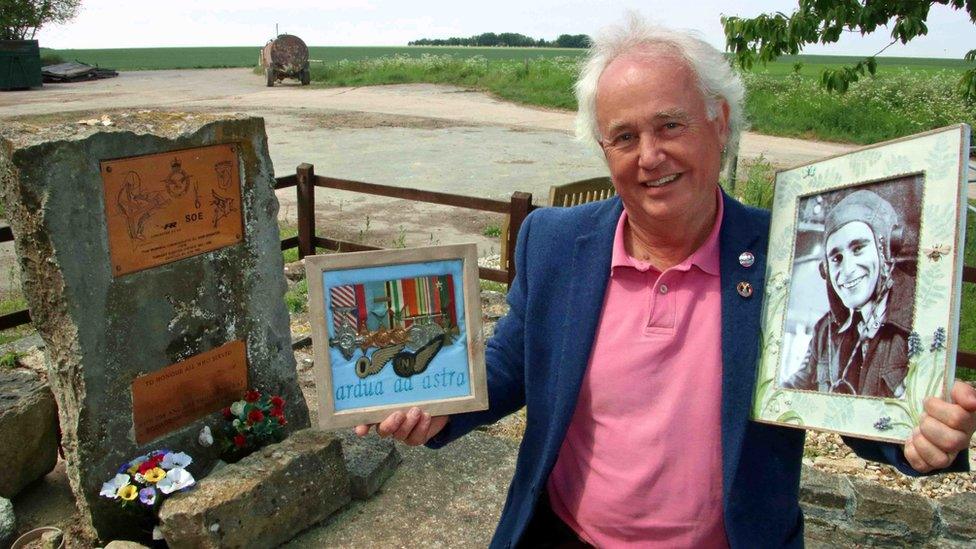
- Published11 April 2024
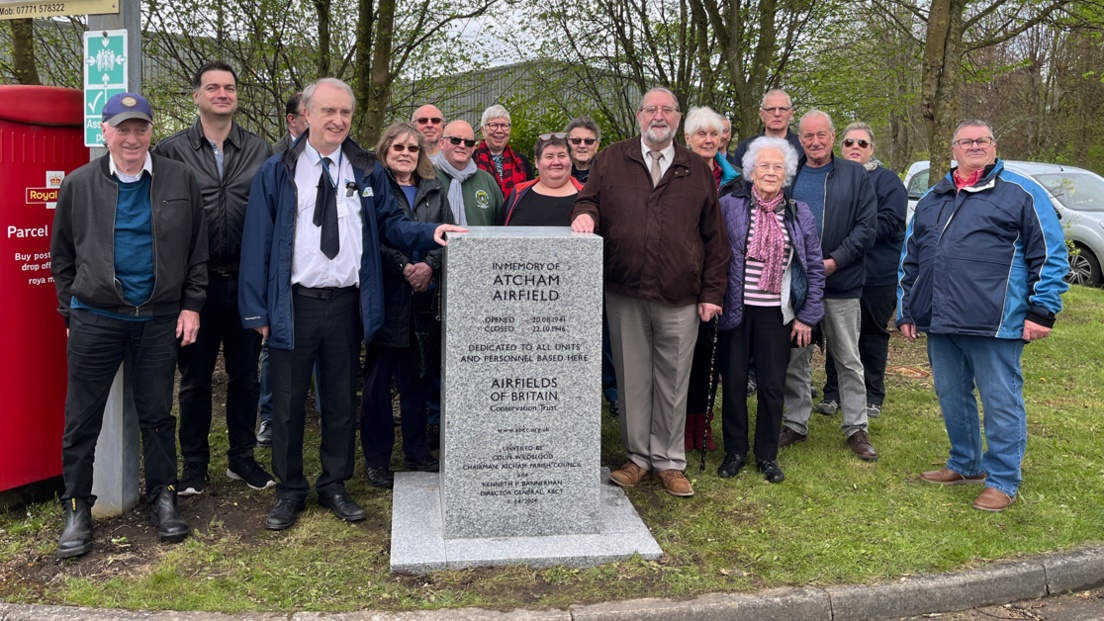
- Published7 April 2023
